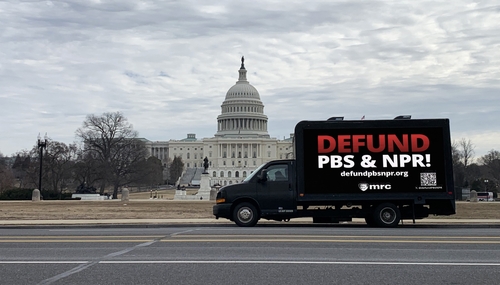MSNBC Morning Joe contributor Mike Barnicle repeated the Democrat mantra that repealing Republican tax cuts doesn't constitute a tax increase that he also spouted yesterday on Morning Joe. "The idea that reverting back to a tax rate that existed that people paid into, calling it now a tax increase, I just think that's politics at its worst," said Barnicle.
Friday's Morning Joe panel, however, had an opposing voice to put Barnicle in his place. Barnicle complained "a certain wing" of the Republican Party wasn't grasping his logic, but former New York Governor George Pataki explained simply how repealing a tax cut is the same as a tax increase. "When you're paying more in taxes, it's an increase in your taxes. It's pretty simple. I mean, the rate is here, and it's going to go to there, and you are saying well, it used to be there, so it's not an increase. That's not - it doesn't make sense to me" said Pataki.
This also gave Pataki the opportunity to take some shots at the President's handling of the debt crisis. "One of the things that I think has been missing here completely is that the President had his own bipartisan commission -- Bowles-Simpson -- $4 trillion in deficit reduction measures. They lowered the tax rate, they lowered the corporate rate to 22%, they lowered the personal rate to 23%, and yes, there were revenue raises by closing loopholes, but they used a lot of that to make us a more competitive economy."
A transcript of the exchange, which aired at 7:42 am on Friday's Morning Joe, follows below.
MSNBC
MORNING JOE
07/08/2011
7:42 am EDT
MIKE BARNICLE: Governor, let me ask you a question off of Gene's answer. There's a certain wing of the Republican Party that claims that the Bush tax cuts, that if you go back to the tax rate prior to the Bush tax cut, that that's a tax increase. Is that your view?
GEORGE PATAKI: Yes, it is.
BARNICLE: How can it be?
PATAKI: Because we have tax rates now. The highest marginal rate is I think 35%, and it would go to 38.6%. When you're paying more in taxes, it's an increase in your taxes. It's pretty simple. I mean, the rate is here, and it's going to go to there, and you are saying well, it used to be there, so it's not an increase. That's not - it doesn't make sense to me.
BARNICLE: I liken it to like food sales, you know one day only milk is going to be $3 and -
PATAKI: It wasn't one day only. It was a ten-year law.
BARNICLE: I understand that, but, I mean the idea that reverting back to a tax rate that existed that people paid into, calling it now a tax increase, I just think that's politics at its worst.
PATAKI: I don't think so at all. It's clearly a tax increase. And by the way, you know, you're saying "we've got to raise taxes on all these small business people -"
BARNICLE: I'm not saying that.
PATAKI: That's what you would be doing, and take a look - one of the things that I think has been missing here completely is that the President had his own bipartisan commission. Bowles - Simpson. $4 Trillion in deficit reduction measures. They lowered the tax rate, they lowered the corporate rate to 22%, they lowered the personal rate to 23%, and yes, there were revenue raises by closing loopholes, but they used a lot of that to make us a more competitive economy. And there are two things we have to do to get out of this debt. One is reduce spending and the other is grow the economy.




